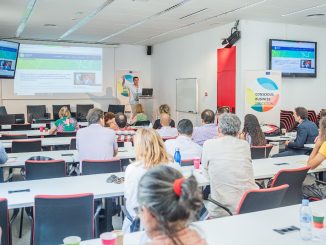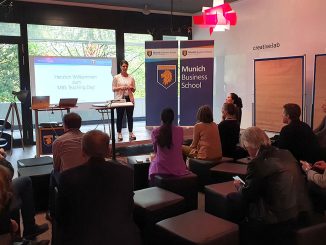
In this series, we hold regular interviews with members of the Munich Business School (MBS) faculty to gain insights into their research projects and discover how this work benefits business and students. Today it is the turn of Prof. Dr. Florian Bartholomae, Professor for Economics at Munich Business School and trainer for the Game Theory module in the Certified Strategy Manager course.
MBS Insights: Professor Bartholomae, what exciting research projects are you currently working on?
Prof. Dr. Florian Bartholomae: I am working on two projects at the moment. On the one hand, I am working on the (economic) effects of digitalization. I am interested, for example, in the general conditions under which digitalization is advantageous for companies and for competition. If you look at the cost-saving effect of digitalization in particular, all companies are actually exposed to digitalization pressure – but this can ultimately have a negative impact on the companies if the initial costs of digitalization cannot be compensated for by the resulting stronger competition. A second aspect is whether and how traditional business models can change as a result of new technologies such as 3D printing – here, too, it is not really clear whether companies ultimately benefit by outsourcing production to consumers.
The second major project is the analysis of the corona pandemic or the (political) measures to contain it. My MBS colleague Prof. Dr. Eva Stumpfegger and I recently published an analysis in the CESifo Forum. In this paper, we deal in particular with the purposefulness of the measures and the fundamental tasks of the state in this crisis. Here, too, the picture is very ambivalent.
MBS Insights: Where do you see the added value of your research for students?
Prof. Dr. Florian Bartholomae: I see the added value in the promotion of critical thinking. Many people see economics topics in particular as abstract and rather remote from practice. In the end, however, the theoretical models – which all have their origins in the observation of real phenomena – serve to train and structure thinking in order to ultimately be able to better grasp interrelationships. In a globalized and increasingly complex world with huge challenges, such as ensuring equal access to resources for all people or combating or adapting to climate change, it is important to be able to assess the consequences of actions. Very often, however, only the advantages or disadvantages of an action are seen. But outcomes are always ambivalent, so one must always look at the whole picture.
MBS Insights: And how does the practice benefit from this?
Prof. Dr. Florian Bartholomae: The practice benefits from a comprehensive view of the effects. But also what to look out for. The basis of many of my projects, for example, is game theory, which is used to estimate the actions of other actors. The results of many decisions ultimately always depend on the actions of others: What influence does my digitalization decision have on my competitive situation if the competition is also digitalizing? What influence does a ban on practicing a profession to combat a pandemic have on the structure of the economy? Only by penetrating and understanding these interrelationships can you ultimately make the best possible decision.



